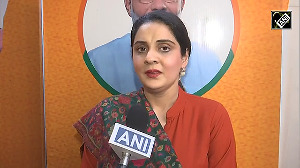The situation in most Indian households and corporate offices today shows one major action taken -- cost-cutting. This action is attributed to the inflation rates in India as well as the looming global recession. Inflation is defined as a sustained increase in the general level of prices for goods and services.
According to the 2008 Economic Survey report, the Reserve Bank of India had targerted trimming down India's inflation rate from 5.77 per cent in 2007 to 4.1 per cent. However, by July 2008, the key Indian Inflation Rate, the Wholesale Price Index, had risen above 11 per cent; it's highest in 13 years. This is more than 6 per cent higher than a year earlier and almost three times RBI's target of 4.1 per cent.
Such desperate situations call for desperate measures. Inflation is a hydra-headed monster. It cannot be controlled by taking a single measure. However, if finances are wisely coordinated, it can greatly help in controlling the continuous process of rising prices. To handle your finances during inflation, you should:
1. Curb your expenditure: Do not overuse daily essentials like cooking gas, electricity etc. Cut down on inessentials when buying groceries. Look for cheaper alternatives to products that you normally buy.
2. Follow a budget: Create a budget for monthly spending and savings. Save money at the beginning of the month and stick to your spending limits. Do not eat into your savings or debt amounts.
3. Invest in government-backed investment and deposit schemes: Government-backed investment schemes such as Post Office Savings Schemes, Public Provident Funds (PPF) and National Savings Certificates (NSC) are best to invest in when inflation is slowly inching up and you are only looking at safety, not returns.
Even bank fixed deposits are a good bet. These instruments also offer attractive rates of return. For instance, while post office schemes offer 8 to 9% guaranteed returns, the same can go up to 10-11% in the case of bank fixed deposits, which can't be considered bad in the current scenario.
However, inflation eats into the returns offered by assured return schemes like fixed deposits and small savings schemes, thereby leaving investors with dismal real returns.
4. Diversify your investments: Risk and return always go hand in hand while investing. When you choose to save in government-backed savings plans, you can't expect a higher-than-market rate of return for the money, because your primary objective is security of the funds and not returns.
So, even if some of your money is safe, you are still not meeting many of your financial goals. To accomplish your financial goals within the desired time, your investments should have some exposure to equity, real estate and other high-return instruments.
5. Invest in gold: Commodities like gold are a hedge against inflation. This is mainly because the factors that affect the prices of gold are different from those that impact the prices of other assets like equities for instance.
When uncertainty affects global markets, investors prefer to take refuge in gold because in times of inflation, gold prevents erosion in the value of the purchasing power.
6. Invest as per your risk appetite: Investing long-term or short-term should all depend on your risk appetite. However, shorter the term, lesser the risk you should take with your funds. This will ensure that the uncertainty of returns is lesser as you gradually approach your financial goal!
7. Safeguard your investments: Invest in short term deposits and funds, commodities and property. This will help you to slowly reach your financial goals while safeguarding your hard-earned money.
BankBazaar.com is an online marketplace where you can instantly get loan rate quotes, compare and apply online for your personal loan, home loan and credit card needs from India's leading banks and NBFCs.
Copyright 2008 www.BankBazaar.com. All rights reserved.






 © 2025
© 2025